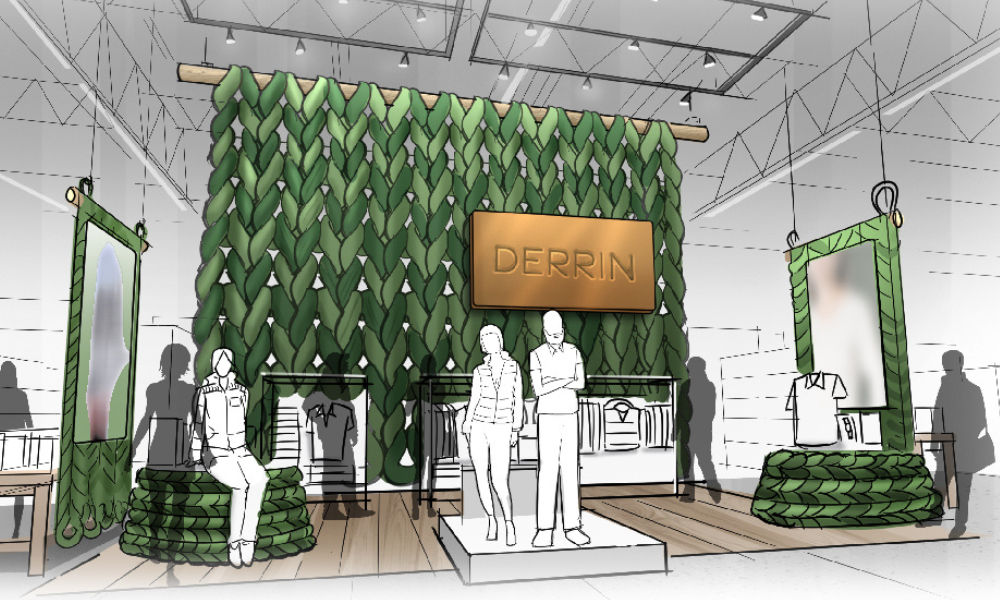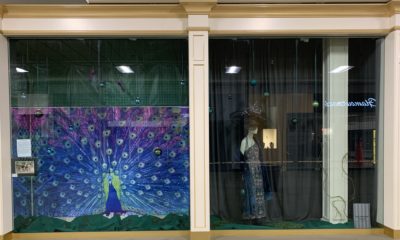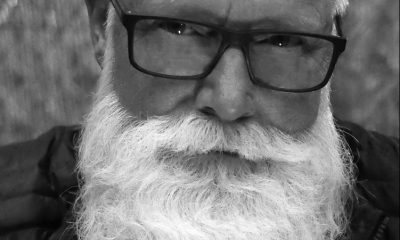THIRTY YEARS AGO, my wife and I exchanged wedding vows at the McGill University chapel in Montreal. It was an Indian summer day in late October with a clear sky and falling leaves doing acrobatics on the warm, woody air of an autumn breeze. In our young adulthood, we were full of an independence of thought, a fierce determination to be different, a passion to rise above the noise and chart our own path. I was 27 years old and all full of “the world is my oyster” sorts of thoughts.
We chose a dynamic young female chaplain to officiate our wedding day and to help articulate how we wanted to lead our life in partnership. In our vows we promised “…our love, strength and hope…through all the changing circumstances of life…”
“Through all the changing circumstances of life.” I can’t tell you how many times I have had to readjust my story of how I believed life would unfold. For some time, I saw life as linear: a process that naturally progresses with ease and, by the way, should run pretty much along the path that I had determined it should follow. Wrong. I mean, not even close. In fact much of the original plot line has been changed and most of the time it took a major readjustment of my mindset. And that, to be honest, has generally been a challenge. I have been reminded more frequently than I can recall of the old Yiddish proverb “Man makes plans … and God laughs.” And for me, the hard reality of this adage kept on replaying as though it was a lesson that I was supposed to hear, over and over, until I learned it.
My brilliant wife, with whom I have now navigated 30 years of changing circumstances, will say that I am better at going with the flow now than ever before. Working to fill my days with a mindfulness practice, doing what I love creatively, riding my Peloton bike, not putting up with BS from people around you (or myself), living my own truth with authenticity and humility, standing up for what I believe in, having a voice and using it, looking more outwardly to others rather than seeing the world through my own lens and a host of other things have helped to wrench me from rigidity. So is every day perfect? Far from it.
And so, here we are again. I had a plan of how 2020 would generally play out. Wrong (again). Once more I am staring into the unknown. A great Indigo Girls song, Watershed,” has the lyric: “…up on the watershed, standing at the fork in the road, you can stand there and agonize, ‘till your agony’s your heaviest load…” There’s also a great Yogi Berra quote I keep in mind: “When I come to a fork in the road, I take it.” These should become mantras for times of change.
Our current COVID-19 crisis is again forcing us rewrite the script, bravely change face, and have “strength and hope, through all of the changing circumstances” that are now upon us.
Advertisement
In short, I am ditching the load and taking the road.
Moments of change are also an opportunity to view the world differently; to not believe that the true path of discovery is to visit strange new lands (though these times are indeed both new and strange), but to “see with new eyes,” as Marcel Proust would have said. For those of us born in another era, we have the additional burden of readjusting to a new normal when our world view is a construct built in what younger customers perceive as “ancient times” despite being, historically speaking, in the relatively recent past. But as the clock of change speeds on, the recent past fades more rapidly from view, replaced by ever-increasing ephemera.
The new and strange times that emerging customers are growing up in makes them pioneers not just of a new normal but of the new possible. Forging new paths into the ever-changing unknown future will take some courage. Depending on who you talk to, this group of customers are perhaps unprepared to take on these challenges as many of the skills they might need have not been inculcated in them by their Gen X and boomer parents. In addition, their immersion in the digisphere has made many rites of passage enacted by previous generations unnecessary, or at least, not as important to them.
Recent research by Jean M. Twenge in her book “iGEN” details the precipitous drops in participation in what might be considered as traditional “rites of passage” that previous generations may have considered necessary to develop the grit to handle adult life. According to Twenge, an increasing proportion of the Gen Z cohort, or “iGen” as she refers to them, take fewer risks, choose not to drive, have sex or drink during their teenage years. Not that any of these personality characteristics should necessarily suggest an approach to crafting brand experiences for them, rather that they are descriptors of a changing demographic that is choosing not to participate in the coming-of-age years as previous generations have. Twenge describes, with an abundance of meta-analysis and her own research to support her claims, how many traditional teenage proclivities that typically have been used to test boundaries, establish independence, eschew the wisdom authority or explore social norms, simply don’t apply to them.
They are coming of age in a time with boomers and millennials, whose worldviews are based in traditions of generations past. This generation may well lose the moniker Gen Z and adopt what I have now heard called “Coronials” or “Quaranteens.” Their generation’s world view will have foundations built on the experience of a global pandemic that not only caused an economic shutdown for months but will have impact on guest experiences far into future years. This is indeed the “watershed” moment that may define their cohort of brand experience seekers.
When considering the challenges of creating relevant experiences for this new cohort of experience seekers, brands and the creators of engagement places will need a mindset change. As I discussed in a previous blog about the Luddite insurgence during the English Industrial Revolution of the early 1880s, rigidity towards technological advancement, partly born of a fear of change, may have been one of the hallmarks the Luddite movement. A lack of flexibility in adapting to the pace of change may well have played a role in their downfall as the pace of the Industrial Revolution swept their (legitimate) grievances toward factory owners aside.
Advertisement
A lack of mindset flexibility, resiliency and a willingness to reframe perceptions and experiences undermines healthy adaptation to any sort of “new normal.” Our goal should be to see the world every day with a “blue sky” mentality where we evaluate the relevancy of our long-held assumptions about how things should work when confronted with how they are actually working.
Holding onto outdated ideals (we all like the comfort of the known) may become an impediment to success in both a digitally enabled marketplace as well as a customer experience world that will ask us to rewrite the narrative we have long held. In the words of J. Paul Getty, “In times of rapid change, experience could be your worst enemy.”
Change is inevitable. Transformation, however, is not. Transformation cannot come about by an act of will. It can only come about as an act of love. Love, in turn, takes commitment and a willingness to recognize one’s vulnerability in relationship. Commitment requires action. Vulnerability asks us to summon courage to face being seen for who we truly are.
Change, and the ever-increasing speed at which it occurs, will require more creativity and innovation, a wider tolerance for failure and deeper enthusiasm to keep at the hard work of transformation. We will need an injection of bravery into the ways we think and feel about change. To truly transform into to a “new normal” we will need to use fear as a compass along the way. We will be “off-roading” for most of the trip. There will be very few directional signs to help us decide which fork to take as we sit at the watershed except those we feel in our gut. We must learn to better trust our inner navigation system.
As “How Do You Keep the Music Playing,” by James Ingram and Patty Austin filled the room, my new wife and I held each other and danced our way into a life of rewriting our stories. The lyrics are still fitting after 30 years of the changing circumstances of life:
“… If we can try with every day to make it better as it goes,
With any luck than I suppose,
The music never ends…”
Advertisement

 Photo Gallery1 week ago
Photo Gallery1 week ago
 Headlines3 days ago
Headlines3 days ago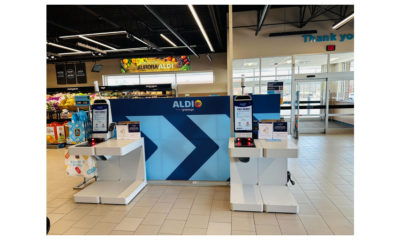
 Headlines1 week ago
Headlines1 week ago
 Headlines1 week ago
Headlines1 week ago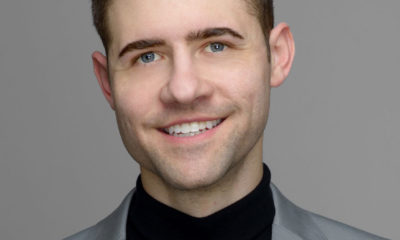
 Designer Dozen2 weeks ago
Designer Dozen2 weeks ago
 Headlines1 week ago
Headlines1 week ago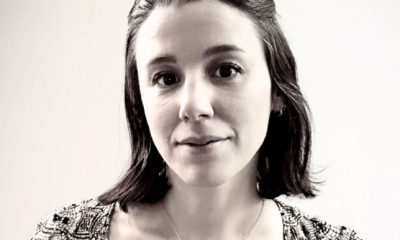
 Designer Dozen6 days ago
Designer Dozen6 days ago
 Headlines1 week ago
Headlines1 week ago
